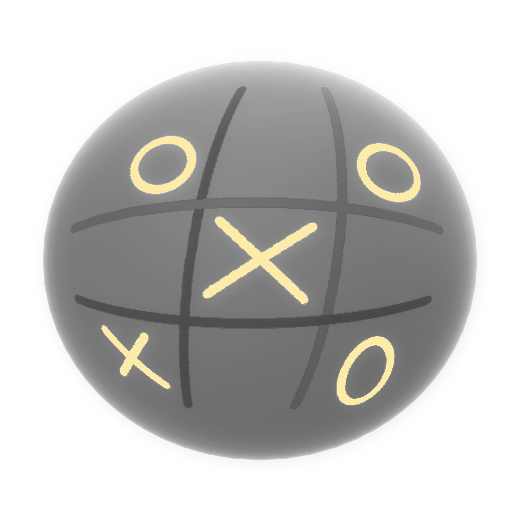The Sanskrit word Kaivalya means "aloneness, isolation", and refers to someone who has renounced and isolated himself from all attachments to worldly desires. It also refers to "the absoluteness", the inner conviction of man on a spiritual journey to liberation. The term Upanishad means it is knowledge or "hidden doctrine" text that belongs to the corpus of Vedanta literature collection presenting the philosophical concepts of Hinduism and considered the highest purpose of its scripture, the Vedas. The state of Self-realization He who sees himself in all beings, And all beings in him, attains the highest Brahman, not by any other means. —Kaivalya Upanishad 10. Brahma answers, asserts verse 2 of the Upanishad, "Seek knowledge with Sraddha-bhakti-dhyana-yogadavehi, translation: faith, devotion, meditation in yoga, not ritual works, not wealth, not offsprings". Aloneness and renunciation, states the text, is the path to the life of eternity. Beyond heaven, in the heart, that which shines within, states Brahma in verse 3 of the Upanishad, is the destination of those who have understood the meaning of Vedanta doctrine. There, states the text, all the sannyasis, renunciates who have reached that wisdom reside, in the state of pure being. The Upanishad says, seclusion is their place, enthroned is their joy, calm is their Yoga. These are the ones, asserts the Upanishad, who revere their teachers or Gurus, who live a life of virtuous self-restraint, in their Ashrama stage of life. These are the ones who meditate, states the text, their focus on their heart, wherein resides the pure one, the griefless, the bliss, the eternal brahman with saraswati. The text then iconographically paints god Shiva, as the one who is the companion of Uma or Parvati, with three eyes where the third eye or sixth chakra in the celestial world of shiva has manas, buddhi and soma chakras, with blue neck enabling Vishnu and Lakshmi for Parvati and Her father, the calm wonderful lord imbued with intelligence and bliss of Brahmavidya, the source of everything, the first yogi. It is this supreme lord, states the text, one must meditate on, asserts verse 7. This supreme, states Kaivalya Upanishad, is the eternal, the all-pervading, formless, unmanifest, infinite, inconceivable, one without beginning or middle or end, one which is chidananda ("consciousness-bliss"), or Satchidananda. Through Satchidananda, He is, states the Upanishad, Brahman, Shiva, Indra, Vishnu, Prana which is life force breath, fire and moon time with lunar calendar. Eternity is him, states the text, all that originated is him, all that originates is him. Know him, find liberation, there is no other way, states verse 9. A Jiva is a being immersed in Maya or changing reality, illusive world craves for worldly greed, performs karoti or ritual works, enjoys bodily pleasures like women, food, drink and pleasures. This, states the text, gives him satisfaction in his wakeful state, in dream as he sleeps his soul fashions a dream world of joys and nightmares, but this is all deception. True bliss, states the text, comes in the third state of consciousness. It is, states the text, the third estate or creation, everything comes to rest, in whole, in peace, in bliss, in Oneness, listening to sound of silence through many, with their pranas. This is called the grand resurrection in Christianity. Brahman, the supreme soul of all, the great resting place of universe, The subtlest of the subtle, eternal, you yourself are it, and it's you! The verse 17 of the text repeats, that all three states, experienced when one is awake, when one dreams, when one is in deep dreamless sleep, is illuminated therein. "Know yourself to be that Brahman", and experience liberation. The text, in verses 18 to 24 describes the state of liberated renouncer. The Upanishad states he is blissful, content in all three states of consciousness, feels everything was born in him and abides in him and dissolves in him, that he is Brahman that is in everyone, he is Sadashiva, ancient, diverse, spiritual, with the gift to know eternity. The liberated renouncer, feels he is the knower, the perceiver, the one to learn the Vedas, the one to perfect the Vedas, states verse 22 of the text. He feels his essence is beyond good and bad, beyond body and mind, beyond merit and demerits, beyond what perishes, asserts the text. The liberated man, states the Upanishad, has found the highest Atman in his heart. In the end, the glories of reciting the Kaivalya Upanishad are told. Recitation of this Upanishad, asserts the epilogue, frees one of various sins, and the gurus, the trinity, end the cycle of samsara, birth, death, rebirth, for everyone, gains Supreme Knowledge and kaivalya. Commentaries on the Kaivalya Upanishad are also written by Brahmayogin, Osho and Aurobindo.


 Shop Ventures NFT
Shop Ventures NFT